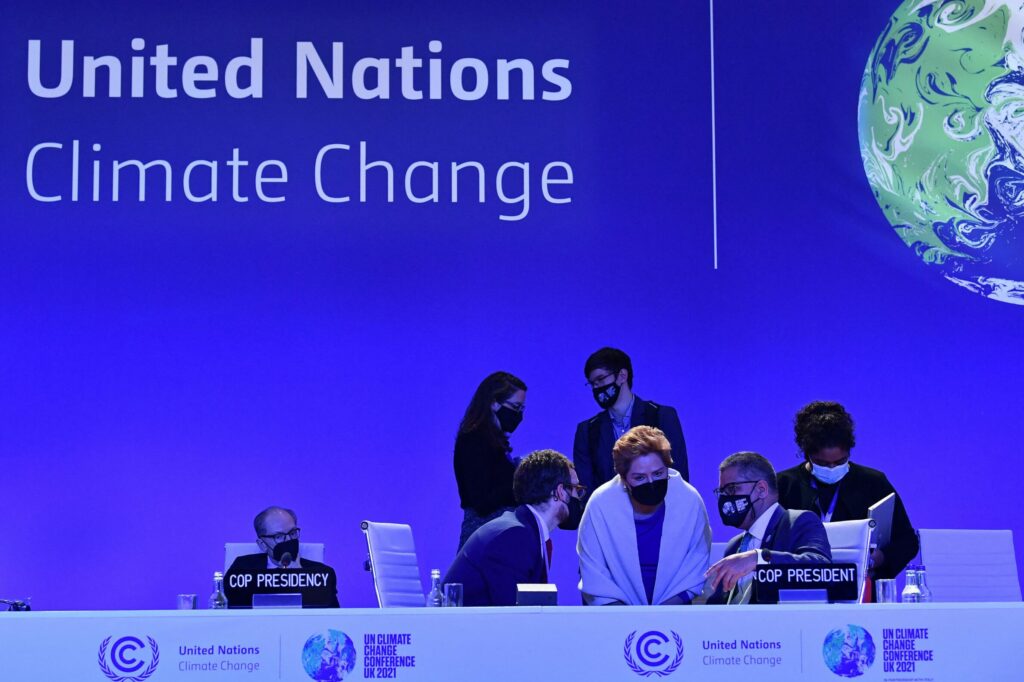The 2021 United Nations Climate Change Conference (COP26) concluded November 12, with disappointing outcomes from many perspectives of the climate emergency. As the summit ran late on its final day, and as delegates shaped their statements for all 197 countries to agree on, a group of over 200 international scientists issued a grave warning.
“We, climate scientists, stress that immediate, strong, rapid, sustained and large-scale actions are necessary to hold global warming to well below 2 degrees Celsius and pursue efforts to limit it to 1.5 degrees Celsius,” they wrote in a November 11 letter to the conference.
Sonia Seniveratne, climate researcher and lead author of the latest climate science report from the Intergovernmental Panel on Climate Change, emphasized the lethargic pace of action from world leaders.
“This is one of the last opportunities to limit warming to 1.5 degrees Celsius,” she said. Since the countries of the world agreed to that target in the 2015 Paris climate agreement, she said, “no progress has really been made. When you look at the declarations from the COPs since then, they are inconsistent with the science.”
Until the end of the conference, it appeared the countries could have fulfilled COP26 president Alok Sharma’s goal to “consign coal to history.” But in the 11th hour, India successfully motioned to weaken the summit’s pledge from “phase out” to merely “phase down” coal.
Mother Jones writes, “It’s impossible to be happy about COP26’s outcome — virtually every country said the Glasgow Climate Pact was less than what it wanted, and island nations in particular were furious over India’s last-second intervention — but the pact was not an irredeemable failure. Sharma’s claim that COP26 had ‘kept 1.5 alive’ is plausible, if barely.”
The pact resulting from this summit obliges governments to come back next year to try again, with stronger action plans. Also, contrary to widespread belief, there is far less additional temperature rise irrevocably “baked in” to the climate system than the three to four decades that was previously believed. This means aggressive emissions cuts can still make a big difference.
But following the summit, the world is still set to increase in warming about 4.5 degrees Fahrenheit, according to several analyses by outside organizations that use climate modeling to track the effects of climate policy changes showed. This warming is well above the limit set by the 2015 Paris agreement pact of 2.7 degrees Fahrenheit. The most recent climate science assessment by the Intergovernmental Panel on Climate Change spelled out how devastating those 4.5 degrees of warming would be, including heatwaves that will kill crops and intensify rainstorms and floods.
Columbia Journalism Review warned that COP26, for many news consumers, has faded into “just another block on a homepage,” or another cable news segment; there is an urgency gap between reporters at the summit and the public. Local media might help:
“As much research has suggested, local media has significantly higher rates of trust with news consumers than national media. Local news coverage of events like the COP summit — and the agreements they produce — provides opportunities to bring the urgency home.”
This will be a necessary step for climate action, as both the public and world leaders remain alarmingly unconcerned about the greatest existential threat to the planet.
Image by Ben Stansall / AFP via Getty Images

